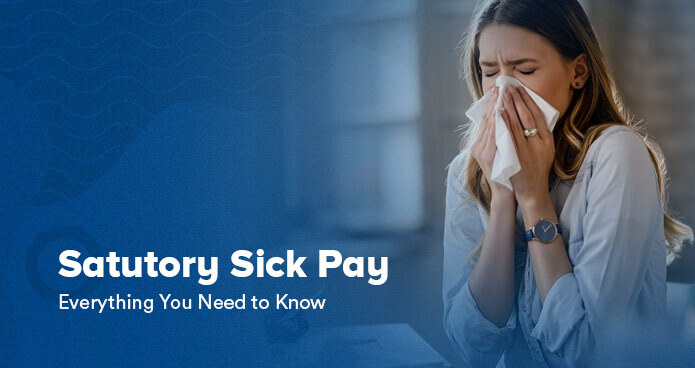In the post-covid world, we woke up to a world where sick pay is more important than the pre-pandemic work environment. Statutory Sick Pay has become a hot-button issue for many employers, contractors and employees alike. Therefore, in this blog post, we covered statutory sick both from employees' and employers' perspectives.
How much is Statutory Sick Pay?
Statutory Sick Pay (SSP) is a set amount of money paid to employees who are off work due to illness or injury. It was put in place to ensure that those who can’t work due to illness are still able to receive some income while they recover. The current rate for SSP is £99.35 per week, up to a maximum of 28 weeks.
Does My Employer have to Pay me Statutory Sick Pay?
Employees who want to make a claim for SSP must provide evidence such as a doctor’s note or fit note in order to qualify. However, there are exceptions to this rule and some employees may be entitled to more than the standard rate. For example, those who are self-employed may be eligible for Employment and Support Allowance (ESA) instead.
Employers’ Responsibility
The responsibility of paying SSP lies with the employer, who is required to pay it to all eligible employees. This means that employers must keep up-to-date records on employee absences due to illness or injury, and must be able to prove that they have made the necessary payments.
Employers are also responsible for keeping employees informed of their rights, including entitlement to SSP. They should provide clear information on issues such as how long an employee can receive SSP, whether they can take a second job while receiving it and how to make a claim.
What are the Rules on Statutory Sick Pay?
Eligibility criteria to be entitled to statutory sick pay comes with some rather specific requirements;
- Employees must be aged 16 or above,
- Have been off-sick for at least 4 days,
- Have a contract of employment with an employer and have earned more than £120 per week for eight weeks prior to their illness and
- Has to follow the notice period, stated on the employment contract.
Can I get Self-Employed Statutory Sick Pay?
Unfortunately, those who are self-employed are not eligible for SSP. The only exception to this is if an employee's earnings from their employment contract fall below the minimum wage and they receive the National Living Wage or National Minimum Wage. In these cases, they may be entitled to reclaim a certain amount of SSP through Employment and Support Allowance (ESA).
How to Claim Statutory Sick Pay?
In order to make a claim for SSP, an employee must contact their employer and provide evidence of their illness such as a doctor's note. The employer then assesses the claim and decides whether or not the employee is eligible to receive SSP.
As an employer, you must provide a written explanation, and you are obliged to give employee a statutory sick employer's claim form, known as SSP1 in 7 work days following the call-sick date.
Conclusion
Statutory Sick Pay is an important part of the workplace and it’s essential that employers understand their responsibilities when it comes to providing this benefit. Eligible employees must also be aware of their rights, including which payments they are entitled to and how long they can claim them for.
The process and its necessity especially took an important position after the pandemic at workplaces, as every other platform of life, the business environment in the UK has also become more "sick-payment-aware".













